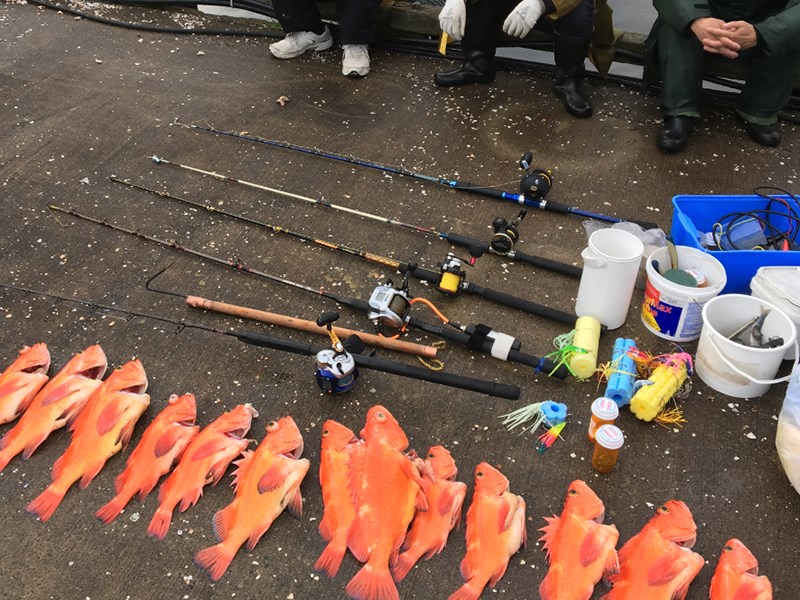Four anglers have been sentenced with unprecedented fines, penalties and forfeiture for overfishing rockfish recently in the Powell River region. The individuals involved were found to be in gross over possession of their one a day limit of rockfish.
One of the anglers, who Powell River Fisheries and Oceans Canada (DFO) officer Ben Rahier described as the lead person, was fined $5,000 and prohibited from recreational fishing in tidal waters for one year. Two other anglers were issued $3,500 fines, one was fined $3,000, and they were also prohibited from fishing for a year.
“This is a real precedent-setting case in regard to over possession of rockfish,” said Rahier.
It was Powell River fisheries officers who made the discovery of the illegal fishing in May 2017, he added.
“As a result of what was found, we seized the vessel used in the commission of the offence as well as all of the associated fishing gear and the vessel contents, and that was valued at approximately $15,000,” said Rahier. “The judge deemed it appropriate to forfeit that vessel and all of its contents to the Crown.”
It is rare to get forfeiture on a vessel and all its gear, as well as fishing prohibitions and fines this substantial on recreational violations, according to Rahier.
“This is an awesome precedent for violations,” said Rahier. “It shows that the court system is taking violations of this nature very seriously and shows how things will be dealt with in the future.”
The daily limit of one fish per day is due to various rockfish species that are susceptible to overharvesting.
“They're so long-lived they don't really reach sexual maturity until they're 15 to 20 years old,” said Rahier. “If people are taking more than they're allowed, it doesn't take much to negatively impact the stock.”
There are five major rockfish species in the waters around Powell River and down the Sunshine Coast, including China, copper, quillback and tiger rockfish.
“The most popular is a yelloweye rockfish, also known as red snapper, and they're the most sought-after because they're the largest,” said Rahier. “They can get up to 30 pounds and are really good to eat.”
Meanwhile, the investigation and seizure of equipment from two crabbing vessels off Savary Island in April is still ongoing, according to Rahier, and formal charges have not yet been laid.
Rahier said charges against the two vessel masters involved, as well as the owners of the vessels and their licences, have been submitted to federal crown counsel for review.
Rahier said the best information fisheries officers receive for responding to illegal fishing is from the general public. To register a complaint, anyone can call 1.800.465.4336, he added.
Rahier said from what he has seen and heard, there has been an increase in recreational shellfish harvesting in general this year, but illegal shellfish harvesting has yet to be seen. He stressed the importance of checking the Fisheries and Oceans website before planning to take shellfish anywhere up and down the Sunshine Coast.
“This time of year there's algae bloom and red tide that can come and go and sometimes closures can be last minute,” said Rahier. “When you show up at a beach, look for signage. If there's a sign with a skull and crossbones overtop of a clam, don't harvest there.”



